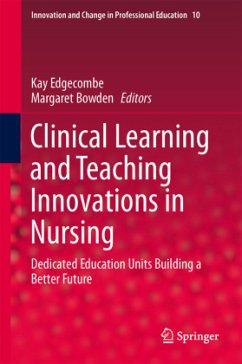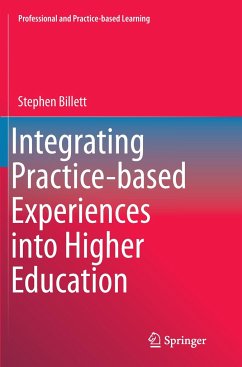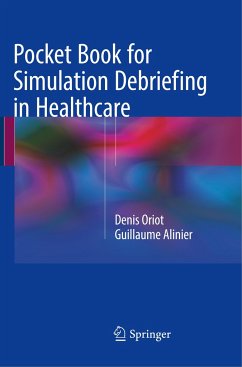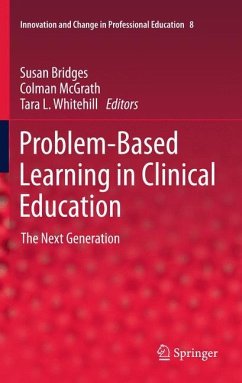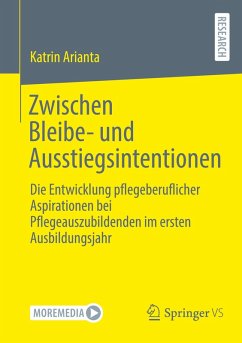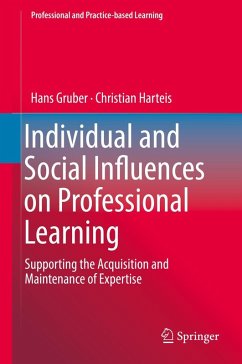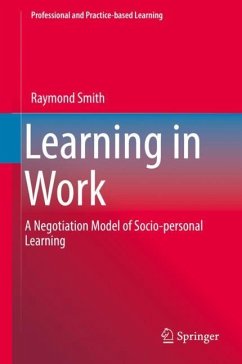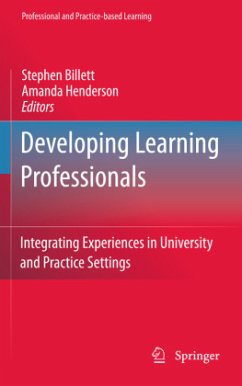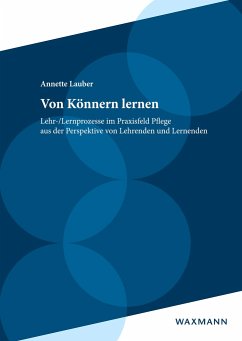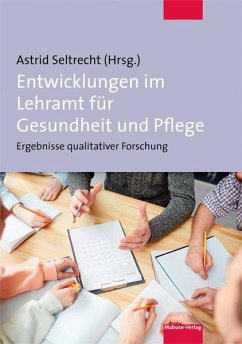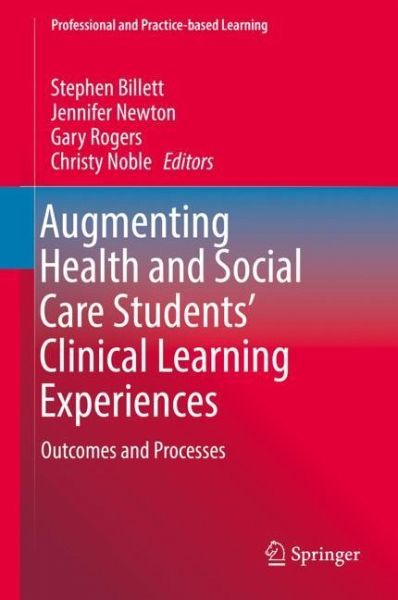
Augmenting Health and Social Care Students' Clinical Learning Experiences
Outcomes and Processes
Herausgegeben: Billett, Stephen; Newton, Jennifer; Rogers, Gary; Noble, Christy

PAYBACK Punkte
38 °P sammeln!
This edited volume offers a range of insights about, practices of and findings associated with enrichening health and social care students' learning by their engagement in educational processes during and after the completion of their practicum experiences in health and social care settings. That is, using post-practicum intervention to augment and enrich those learning experiences. The collected contributions here draw on the processes of trialing and evaluating educational processes that aimed to enrich those practicum experiences for purposes of improving students' understandings, abilities...
This edited volume offers a range of insights about, practices of and findings associated with enrichening health and social care students' learning by their engagement in educational processes during and after the completion of their practicum experiences in health and social care settings. That is, using post-practicum intervention to augment and enrich those learning experiences. The collected contributions here draw on the processes of trialing and evaluating educational processes that aimed to enrich those practicum experiences for purposes of improving students' understandings, abilities to address patients' needs, and health and social care related dispositions. These processes and findings from these processes across medical, nursing, midwifery, physiotherapy, pharmacy, exercise physiology, dietetic and speech pathology education speak directly to educators in both clinical and educational settings in the health and social care sectors. These messages, which arise from educators and clinicians enacting and evaluating these interventions, offer practical suggestions as well as conceptual advances. The reach of the accounts of processes, findings and evaluations is not restricted to this sector alone, however. The lessons provided through this edited volume are intended to inform how post-practicum interventions might be enacted across a range of occupational fields.





